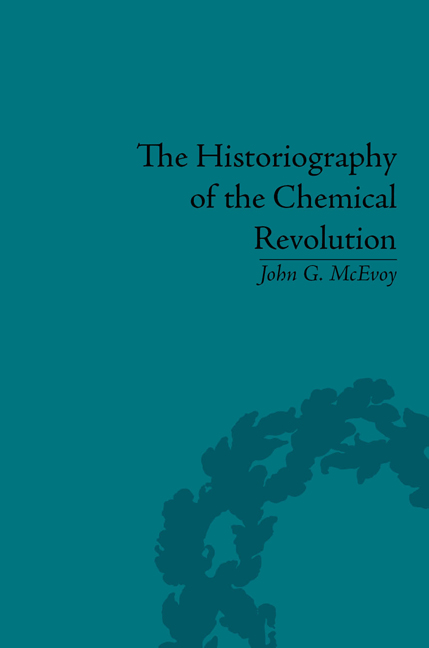Book contents
- Frontmatter
- CONTENTS
- Dedication
- Acknowledgements
- Preface
- Introduction: The Philosophical and Historiographical Terrain
- 1 Positivism, Whiggism and the Chemical Revolution
- 2 Postpositivism and the History of Science
- 3 Postpositivist Interpretations of the Chemical Revolution
- 4 From Modernism to Postmodernism: Changing Philosophical Images of Science
- 5 The Sociology of Scientific Knowledge and the History of Science
- 6 Postmodernist and Sociological Interpretations of the Chemical Revolution
- 7 The Chemical Revolution as History
- Notes
- Works Cited
- Index
4 - From Modernism to Postmodernism: Changing Philosophical Images of Science
- Frontmatter
- CONTENTS
- Dedication
- Acknowledgements
- Preface
- Introduction: The Philosophical and Historiographical Terrain
- 1 Positivism, Whiggism and the Chemical Revolution
- 2 Postpositivism and the History of Science
- 3 Postpositivist Interpretations of the Chemical Revolution
- 4 From Modernism to Postmodernism: Changing Philosophical Images of Science
- 5 The Sociology of Scientific Knowledge and the History of Science
- 6 Postmodernist and Sociological Interpretations of the Chemical Revolution
- 7 The Chemical Revolution as History
- Notes
- Works Cited
- Index
Summary
Opposition to postpositivist interpretations of the Chemical Revolution emerged in the 1980s and 1990s among historians of science influenced by the burgeoning discipline of the sociology of scientific knowledge. These historians stressed interpretive rather than evidential inadequacies with postpositivist models of the Chemical Revolution; they faulted these models not so much for errors or inaccuracies in their specific accounts of the Chemical Revolution as for their questionable assumptions concerning the nature of science and its historical development. Treating science as a social activity, social historians replaced the postpositivist focus on what scientists believed and thought with a concern for what they did and why they did it. They focused on concrete processes and specific agents rather than on abstract structures and global paradigms; and they replaced idealist notions of the unity and autonomy of scientific thought and theory with an awareness of the particularity and materiality of experimental and discursive practices. Critical of the essentialist tendencies and normative interests of postpositivism, sociologically minded historians of science developed nominalist descriptions and naturalist accounts of the specific historical and social practices that shaped science and its historical development. Unhappy with the inability of relatively ‘static’ structures, like paradigms and research programmes, to do justice to the specificity and diversity of history, they called for ‘temporalized and contextualized’ accounts of the history of science.
- Type
- Chapter
- Information
- The Historiography of the Chemical RevolutionPatterns of Interpretation in the History of Science, pp. 127 - 168Publisher: Pickering & ChattoFirst published in: 2014



